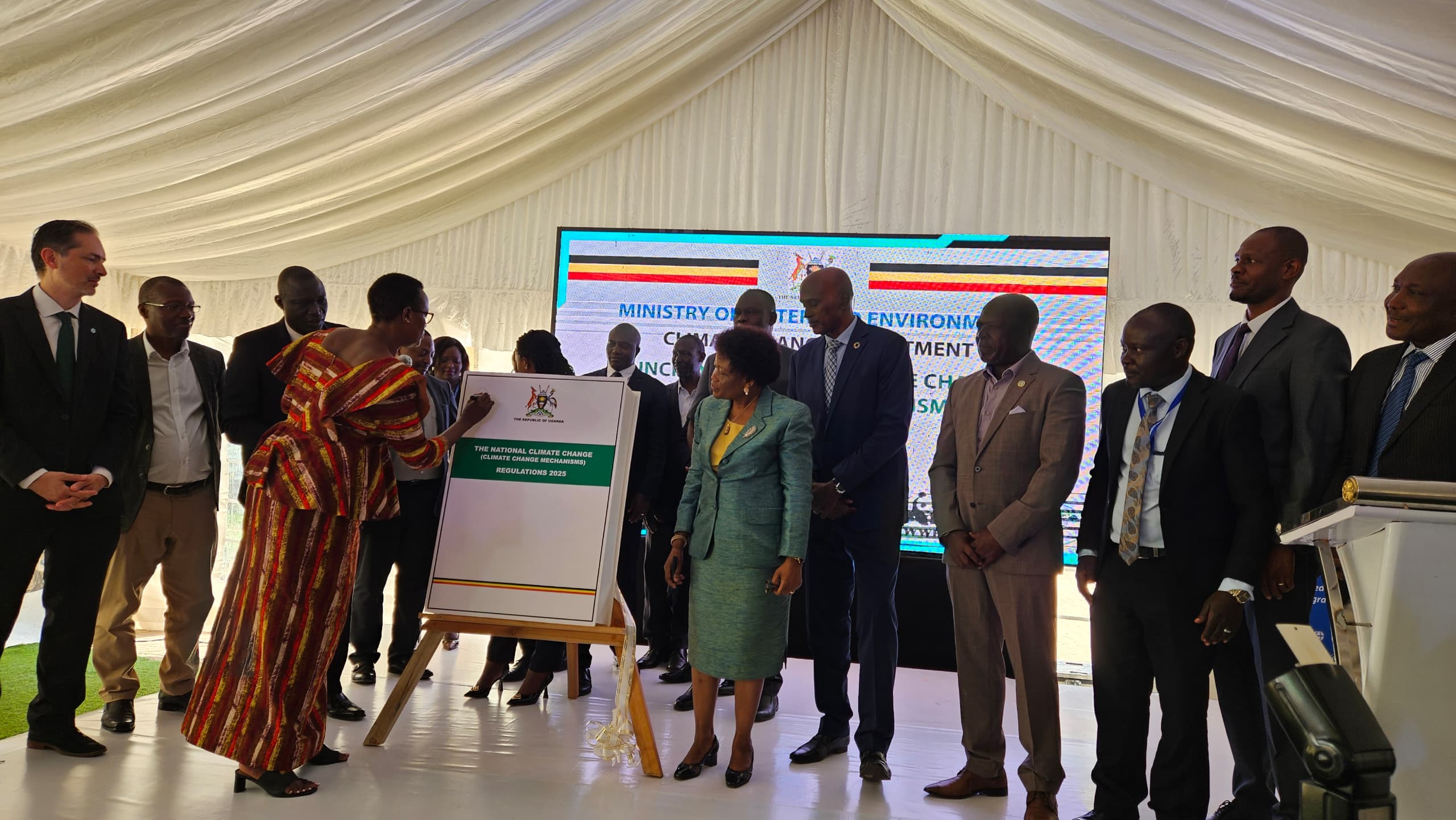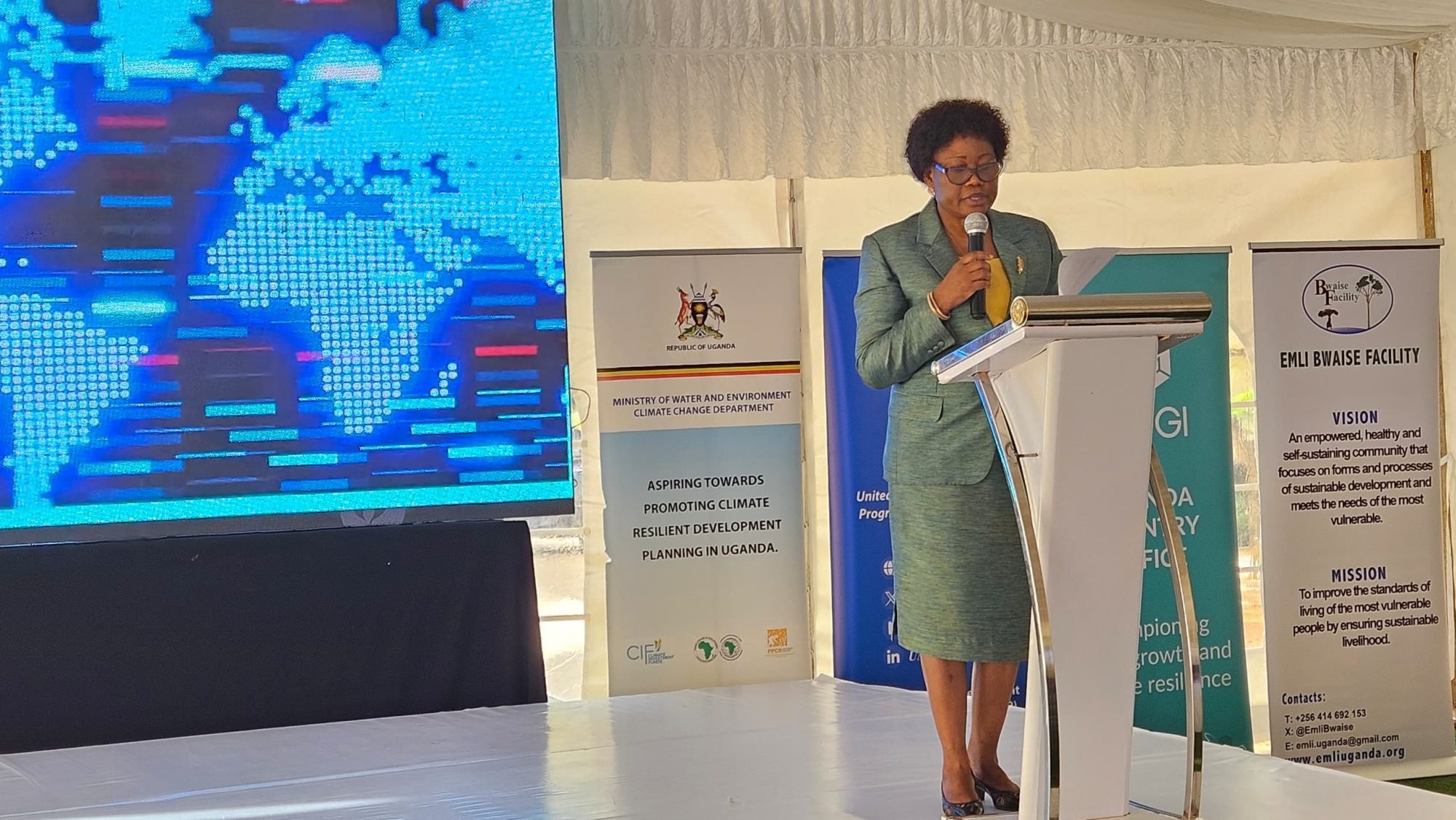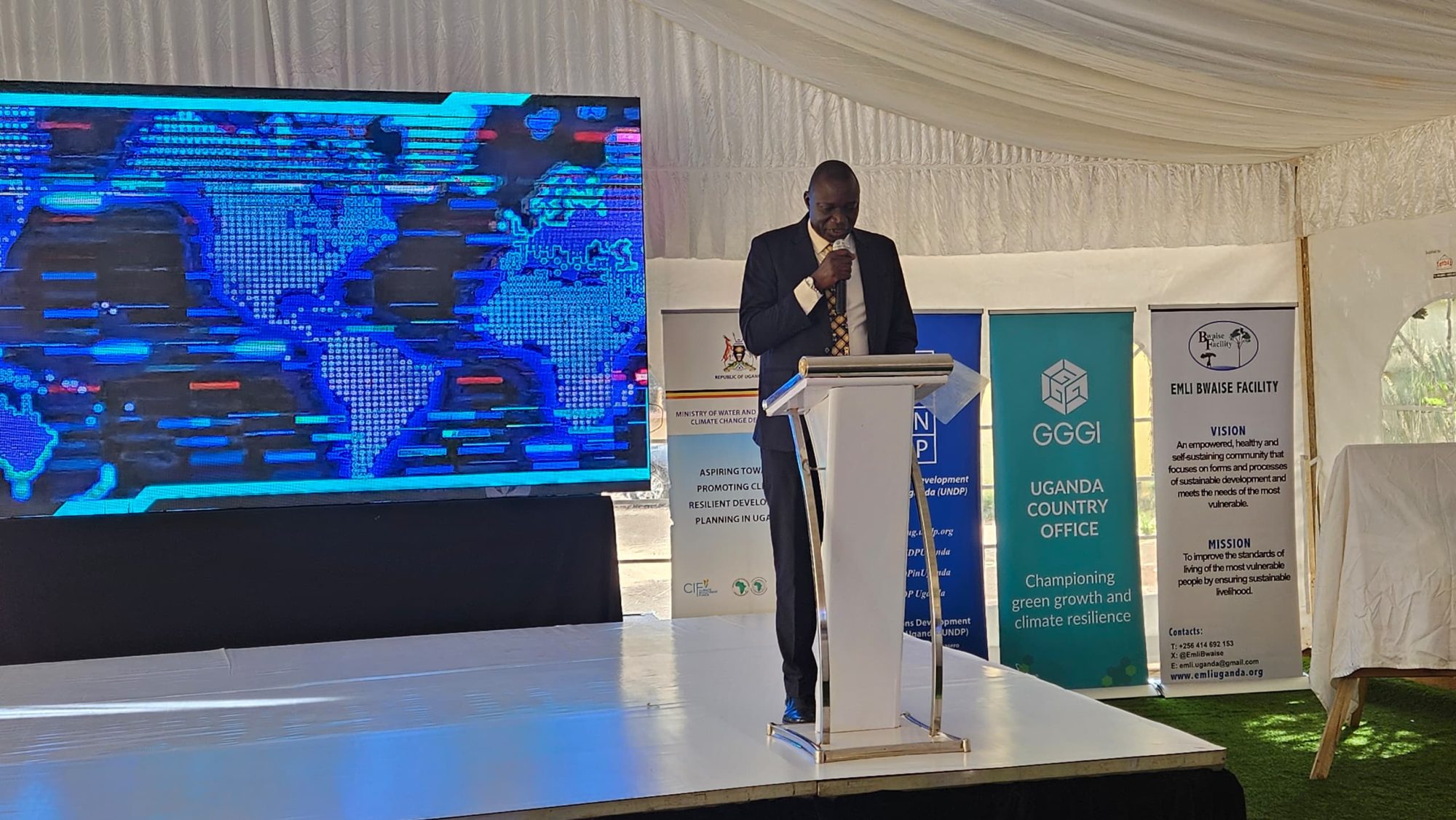Govt Launches Carbon Market Regulations to Boost Climate Finance, Global Cooperation

The government has launched the National Climate Change Mechanisms Regulation, a key milestone in the country's efforts to operationalise Article 6 of the Paris Agreement and tap into the growing global carbon market.
Unveiled by the Ministry of Water and Environment at its headquarters in Luzira on Thursday, the regulations provide a formal framework for Uganda’s participation in international carbon trading, which allows countries and companies to offset emissions by purchasing carbon credits from projects that reduce or remove greenhouse gases.
Speaking at the high-level launch event, Minister of State for Water, Hon. Aisha Sekindi, said the new regulations mark a transformative step in Uganda’s climate policy, enabling the country to mobilise significant climate finance while maintaining environmental integrity.
“The NRM Government has committed to deal with effects of climate variability and change. The regulations are anchored in the principles of environmental integrity and sustainable development, ensuring that all carbon credit activities are aligned with Uganda’s climate commitments and international best practices,” she said.

Sekindi described the carbon market as a “valuable opportunity” to attract climate financing for development, especially in vulnerable sectors such as agriculture, forestry, and renewable energy.
Uganda has been a signatory to the United Nations Framework Convention on Climate Change (UNFCCC) since 1993 and is positioning itself as a regional leader in climate action.
The event drew participation from several international development partners, including the United Nations Development Programme (UNDP), the Global Green Growth Institute (GGGI), the United Nations Framework Convention on Climate Change, the Worldwide Fund for Nature (WWF), the East African Development Bank, and local civil society groups such as ACODE.
David Okurut, representing the Permanent Secretary of the Ministry of Water and Environment, noted that the regulations will help Uganda meet the institutional and technical benchmarks required under Article 6 of the Paris Agreement.
These include maintaining a national greenhouse gas inventory, updating the country’s Nationally Determined Contribution (NDC), and establishing clear carbon market oversight mechanisms.

“I am privileged to highlight that Uganda has in place an updated Nationally Determined Contribution, a functional national greenhouse gas inventory, a National Designated Authority — the Ministry of Water and Environment — the National Climate Change Act (2021), and now the Carbon Regulations we are launching,” Okurut said.
The Commissioner for Climate Change, Margaret Athieno Mwebesa, said Uganda is expanding its carbon project portfolio to meet growing demand and ensure transparency and inclusivity in all carbon-related transactions.
“We aim to ensure that all relevant actors — both state and non-state — are well informed and equipped to engage with the Climate Change Mechanisms in a transparent, inclusive, and accountable manner,” she said.
Uganda’s experience with carbon markets dates back to the Kyoto Protocol era, when the country became one of Africa’s frontrunners in implementing Clean Development Mechanism (CDM) projects.
These earlier efforts resulted in an estimated 8.9 million tonnes of carbon dioxide equivalent in emissions reductions across sectors like energy, forestry, and waste management.
The Paris Agreement, adopted in 2015, expanded the scope of climate cooperation by introducing market and non-market mechanisms under Article 6. Uganda is among a growing number of countries developing national carbon frameworks to allow public and private actors to benefit from global emissions trading.
As part of implementation, the Ministry of Water and Environment is developing a national digital carbon registry to track and manage carbon transactions efficiently. In the interim, the Ministry has requested access to the UNFCCC’s International Carbon Registry to facilitate participation in the global carbon market.
With the new regulations in place, Uganda aims to generate climate finance that supports sustainable development projects, while offering local communities a chance to benefit from environmental conservation and clean energy investments.
Observers say Uganda’s regulatory readiness will not only boost investor confidence in carbon projects but also help the country meet its commitments under the Paris Agreement while adapting to the realities of climate change.
As international carbon markets continue to evolve, Uganda’s move is being watched across the region as a model for integrating climate governance, market innovation, and green development.



0 Comments